|
Books Should Be Free Loyal Books Free Public Domain Audiobooks & eBook Downloads |
|
|
Books Should Be Free Loyal Books Free Public Domain Audiobooks & eBook Downloads |
|
Top Authors |
|---|
|
Book type:
Sort by:
|
By: William Harrison Ainsworth (1805-1882) | |
|---|---|
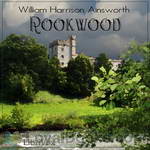 Rookwood
Rookwood
A rich and complex Gothic-Romance centring on the murky deeds of an ancient family. It is a wonderfully atmospheric piece that combines narrative, poetry, song, and descriptive writing to great effect. The character of Dick Turpin that we know today – the dashing highwaymen and unmatched horseman – can be said to stem directly from this novel, as the most famous part of the book (often published on its own in the past), Turpin’s Ride To York, is devoted to him. Although seemingly little known to a modern audience, Ainsworth’s ‘Rookwood’ gave the world the image of the highwayman with which we are all so familiar. | |
 Windsor Castle, Book 1
Windsor Castle, Book 1
Book 1 - Ann Boleyn. The focus of the novels is on the events surrounding Henry VIII's replacing Catherine of Aragon with Anne Boleyn as his wife. During Henry's pursuit of Boleyn, the novel describes other couples, including the Earl of Surrey and Lady Elizabeth Fitzgerald, a match Henry does not support. However, some of the individuals oppose Henry and his desires for Boleyn, including Thomas Wyat who wants her for himself and Cardinal Wolsey, who uses his own daughter, Mabel Lyndwood, to lure Henry away from Boleyn... | |
 Jack Sheppard A Romance
Jack Sheppard A Romance
| |
 Old Saint Paul's A Tale of the Plague and the Fire
Old Saint Paul's A Tale of the Plague and the Fire
| |
By: Samuel Butler (1835-1902) | |
|---|---|
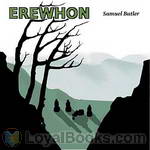 Erewhon
Erewhon
Erewhon, or Over the Range is a novel by Samuel Butler, published anonymously in 1872. The title is also the name of a country, supposedly discovered by the protagonist. In the novel, it is not revealed in which part of the world Erewhon is, but it is clear that it is a fictional country. Butler meant the title to be read as the word Nowhere backwards, even though the letters “h” and “w” are transposed. It is likely that he did this to protect himself from accusations of being unpatriotic, although Erewhon is obviously a satire of Victorian society. | |
 The Way of All Flesh
The Way of All Flesh
The Way of All Flesh (1903) is a semi-autobiographical novel by Samuel Butler which attacks Victorian-era hypocrisy. Written between 1873 and 1884, it traces four generations of the Pontifex family. It represents the diminishment of religious outlook from a Calvinistic approach, which is presented as harsh. Butler dared not publish it during his lifetime, but when it was published it was accepted as part of the general revulsion against Victorianism. | |
 The Atlas of Ancient and Classical Geography
The Atlas of Ancient and Classical Geography
| |
 Unconscious Memory
Unconscious Memory
| |
 A First Year in Canterbury Settlement
A First Year in Canterbury Settlement
| |
 God the Known and God the Unknown
God the Known and God the Unknown
| |
 Essays on Life, Art and Science
Essays on Life, Art and Science
| |
 Erewhon Revisited
Erewhon Revisited
| |
 Life and Habit
Life and Habit
| |
 Hudibras
Hudibras
| |
 Evolution, Old & New Or, the Theories of Buffon, Dr. Erasmus Darwin and Lamarck, as compared with that of Charles Darwin
Evolution, Old & New Or, the Theories of Buffon, Dr. Erasmus Darwin and Lamarck, as compared with that of Charles Darwin
| |
 Cambridge Pieces
Cambridge Pieces
| |
 Alps and Sanctuaries of Piedmont and the Canton Ticino
Alps and Sanctuaries of Piedmont and the Canton Ticino
| |
 The Fair Haven
The Fair Haven
| |
 Canterbury Pieces
Canterbury Pieces
| |
 Luck or Cunning?
Luck or Cunning?
| |
 Ex Voto
Ex Voto
| |
 Selections from Previous Works and Remarks on Romanes' Mental Evolution in Animals
Selections from Previous Works and Remarks on Romanes' Mental Evolution in Animals
| |
 The Humour of Homer and Other Essays
The Humour of Homer and Other Essays
| |
By: William McGonagall (1825-1902) | |
|---|---|
 Temperance Gems
Temperance Gems
Good people all, of every degree,I pray, ye all be warned by me:I advise ye all to pause and think,And never more to taste strong drink. Some people do say it is good when taken in moderation,But, when taken to excess, it leads to tribulation,Also to starvation and loss of reputation,Likewise your eternal soul’s damnation. McGonagall has been widely acclaimed as the worst poet in British history. He campaigned vigorously against excessive drinking, appearing in pubs and bars to give edifying poems and speeches... | |
By: Richard D. Blackmore | |
|---|---|
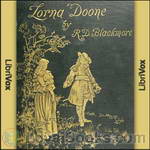 Lorna Doone, a Romance of Exmoor
Lorna Doone, a Romance of Exmoor
“If anybody cares to read a simple tale told simply” … thus opens Lorna Doone, one of the best love stories ever written. The novel has inspired at least ten movies and mini-series. “John (in West Country dialect this is pronounced Jan) Ridd is the son of a respectable farmer who was murdered in cold blood by a member of the notorious Doone clan, a once-noble family now living in the isolated Doone Valley. Battling his desire for revenge, John also grows into a respectable farmer and continues to take good care of his mother and two sisters... | |
 Erema
Erema
A few years before the great Civil War, a young English woman and her father, having left the security of their wagon train, are lost in the unforgiving Californian desert, looking in vain for the landmark that marks the short-cut across those last western mountains which would lead them to the home of an old friend. George Castlewood gives all the water and rations he has to his daughter, Erema, and dies just a short distance from help. Rescued by kind Sampson “Uncle Sam” Gundry, the family friend they had been seeking, Erema lives for a time at his saw mill... | |
By: Justus Liebig (1803-1873) | |
|---|---|
 Familiar Letters on Chemistry
Familiar Letters on Chemistry
Justus von Liebig (1803-1873) was a German chemist who made major contributions to agricultural and biological chemistry and is known for his discovery of nitrogen as an essential plant nutrient. These letters “were written for the especial purpose of exciting the attention of governments, and an enlightened public, to the necessity of establishing Schools of Chemistry, and of promoting by every means, the study of a science so intimately connected with the arts, pursuits, and social well-being of modern civilised nations.” | |
By: G. K. Chesterton | |
|---|---|
 All Things Considered
All Things Considered
Another delightful and sharply pointed excursion into the topics of the day, and of this day as well, with Gilbert Keith Chesterton. These reprinted magazine articles are filled with his good natured wit, his masterful use of paradox, and devastating ability to use reductio ad absurdum to destroy the popular myths that drive a society driving full-speed into secular humanism. You will come away with a whole new collection of wonderful quotes. (Ray Clare) | |
 The Ballad of St. Barbara and Other Verses
The Ballad of St. Barbara and Other Verses
This book of poetry by G.K. Chesterton, originally published in 1922, contain 35 poems on a variety of subjects. | |
By: US Army Corps of Engineers, Manhattan District | |
|---|---|
 The Atomic Bombings of Hiroshima & Nagasaki
The Atomic Bombings of Hiroshima & Nagasaki
This is the official report, published nearly 11 months after the first and only atomic bombings in history (to date), of a group of military physicians and engineers who accompanied the initial contingent of U.S. soldiers into the destroyed cities of Hiroshima and Nagasaki. The report presents a clinical description of the devastation, loss of life and continued suffering of the survivors that resulted from the world’s first and only atomic bombings. The appendix is an eyewitness account, contrasting... | |
By: Georgette Heyer | |
|---|---|
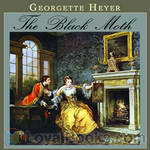 The Black Moth
The Black Moth
Jack Carstares, oldest son of the Earl Wyncham, has been disgraced by his brother. Gone for six years, living the life a highwayman he meets the woman he will fall in love with. Saving her from being kidnapped by a dastardly blackguard he is injured and must stay with her family until he is able to return to his life…will she discovery his true identity? Will he be able to leave her when the time comes? Mystery and humor follow this intriguing cast of characters until the very end. (Summary by Terra Mendoza) | |
By: Arthur Machen (1863-1947) | |
|---|---|
 The White People
The White People
Literary critics see Arthur Machen’s works as a significant part of the late Victorian revival of the gothic novel and the decadent movement of the 1890s, bearing direct comparison to the themes found in contemporary works like Robert Louis Stevenson’s The Strange Case of Dr Jekyll and Mr Hyde, Bram Stoker’s Dracula, and Oscar Wilde’s The Picture of Dorian Gray. The White People is a highly influential horror story of a young girl’s discovery of ancient magic. It was written in the late 1890s as part of a longer unfinished novel, some sketches from which went into his book Ornaments in Jade. Fans of supernatural fiction often cite this story as a classic in the genre. | |
 The House of Souls
The House of Souls
| |
 Hill of Dreams
Hill of Dreams
The novel recounts the life of a young man, Lucian Taylor, focusing on his dreamy childhood in rural Wales, in a town based on Caerleon. The Hill of Dreams of the title is an old Roman fort where Lucian has strange sensual visions, including ones of the town in the time of Roman Britain. Later it describes Lucian's attempts to make a living as an author in London, enduring poverty and suffering in the pursuit of art. Generally thought to be Machen's greatest work, it was little noticed on its publication in 1907 save in a glowing review by Alfred Douglas... | |
 The Three Impostors or The Transmutations
The Three Impostors or The Transmutations
| |
 Far Off Things
Far Off Things
| |
 The Secret Glory
The Secret Glory
| |
 The Great Return
The Great Return
| |
By: Edmond About (1828-1885) | |
|---|---|
 The Man With The Broken Ear
The Man With The Broken Ear
| |
 The Roman Question
The Roman Question
| |
By: Hopkins, Gerard Manley (1844-1889) | |
|---|---|
 Poems of Gerard Manley Hopkins, ed. Robert Bridges
Poems of Gerard Manley Hopkins, ed. Robert Bridges
Gerard Manley Hopkins (1844–89) was an English poet, educated at Oxford. Entering the Roman Catholic Church in 1866 and the Jesuit novitiate in 1868, he was ordained in 1877. Upon becoming a Jesuit he burned much of his early verse and abandoned the writing of poetry. However, the sinking in 1875 of a German ship carrying five Franciscan nuns, exiles from Germany, inspired him to write one of his most impressive poems “The Wreck of the Deutschland.” Thereafter he produced his best poetry, including “God’s Grandeur,” “The Windhover,” “The Leaden Echo,” and “The Golden Echo.” | |
By: Constance Johnson | |
|---|---|
 When Mother Lets Us Cook
When Mother Lets Us Cook
A book of simple receipts for little folk with important cooking rules in rhyme together with handy lists of the materials and utensils needed for the preparation of each dish. | |
By: Varous | |
|---|---|
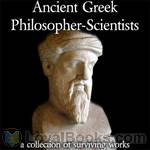 Ancient Greek Philosopher-Scientists
Ancient Greek Philosopher-Scientists
The Pre-Socratic Greek philosophers, that is, the philosopher-scientists who lived before or contemporaneously to Socrates, were the first men in the Western world to establish a line of inquiry regarding the natural phenomena that rejected the traditional religious explanations and searched for rational explanations. Even though they do not form a school of thought, they can be considered the fathers of philosophy and many other sciences as we have them now. None of their works is extant, so, in this collection, we present the textual fragments, when existing, of ten Pre-Socratic philosopher-scientists, and quotations and testimonials about them left by later authors... | |
By: Ernest William Hornung | |
|---|---|
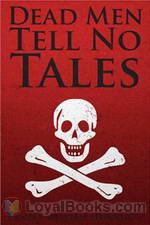 Dead Men Tell No Tales
Dead Men Tell No Tales
Ernest William Hornung (June 7, 1866 – March 22, 1921) was an English author. Hornung was the third son of John Peter Hornung, a Hungarian, and was born in Middlesbrough. He was educated at Uppingham during some of the later years of its great headmaster, Edward Thring. He spent most of his life in England and France, but in 1884 left for Australia and stayed for two years where he working as a tutor at Mossgiel station. Although his Australian experience had been so short, it coloured most of his literary work from A Bride from the Bush published in 1899, to Old Offenders and a few Old Scores, which appeared after his death... | |
 The Crime Doctor
The Crime Doctor
| |
By: Rufus Estes (b. 1857) | |
|---|---|
 Good Things to Eat as Suggested by Rufus
Good Things to Eat as Suggested by Rufus
Rufus Estes was born a slave in 1857 in Tennessee, and experienced first hand the turmoil of the Civil War. He began working in a Nashville restaurant at the age of 16, and in 1883 took up employment as a Pullman cook. In 1897, he was hired as principal chef for the private railway car of U.S. Steel magnates (the fin-de-siecle equivalent of today’s Lear Jets for corporate travel). There he served succulent fare for the rich and famous at the turn of the 20th century. | |
By: Richard Jefferies (1848-1887) | |
|---|---|
 After London, or Wild England
After London, or Wild England
First published in 1885, After London, or Wild England is considered to be one of the earliest instances of post-apocalyptic fiction, describing the effects of an unspecified catastrophe that dramatically changes the face of England and its population. Divided into two parts, the first depicts the fall of civilization, as society reverts to its more primitive roots, while the second part is set years after the apocalyptic event and examines the evident changes in both natural scenery and social structure... | |
 The Gamekeeper at Home
The Gamekeeper at Home
Richard Jefferies (1848 – 1887) was born and spent his childhood on a farm at Coate,Wiltshire. He joined the ‘Wiltshire and Gloucestershire Standard’ in 1868 and also started to write articles and pamphlets on various agricultural issues and local history topics. He is best known for his depiction of English rural life in essays, books of natural history, and novels. This classic of English nature writing gives an idea of the life of a gamekeeper in southern England in the second half of the nineteenth century. | |
 The Open Air
The Open Air
| |
 The Story of My Heart
The Story of My Heart
| |
 Bevis The Story of a Boy
Bevis The Story of a Boy
| |
 Amaryllis at the Fair
Amaryllis at the Fair
| |
 Wood Magic A Fable
Wood Magic A Fable
| |
 Field and Hedgerow Being the Last Essays of Richard Jefferies
Field and Hedgerow Being the Last Essays of Richard Jefferies
| |
 The Amateur Poacher
The Amateur Poacher
| |
 World's End A Story in Three Books
World's End A Story in Three Books
| |
 The Toilers of the Field
The Toilers of the Field
| |
 The Hills and the Vale
The Hills and the Vale
| |
 The Gamekeeper At Home Sketches of Natural History and Rural Life
The Gamekeeper At Home Sketches of Natural History and Rural Life
| |